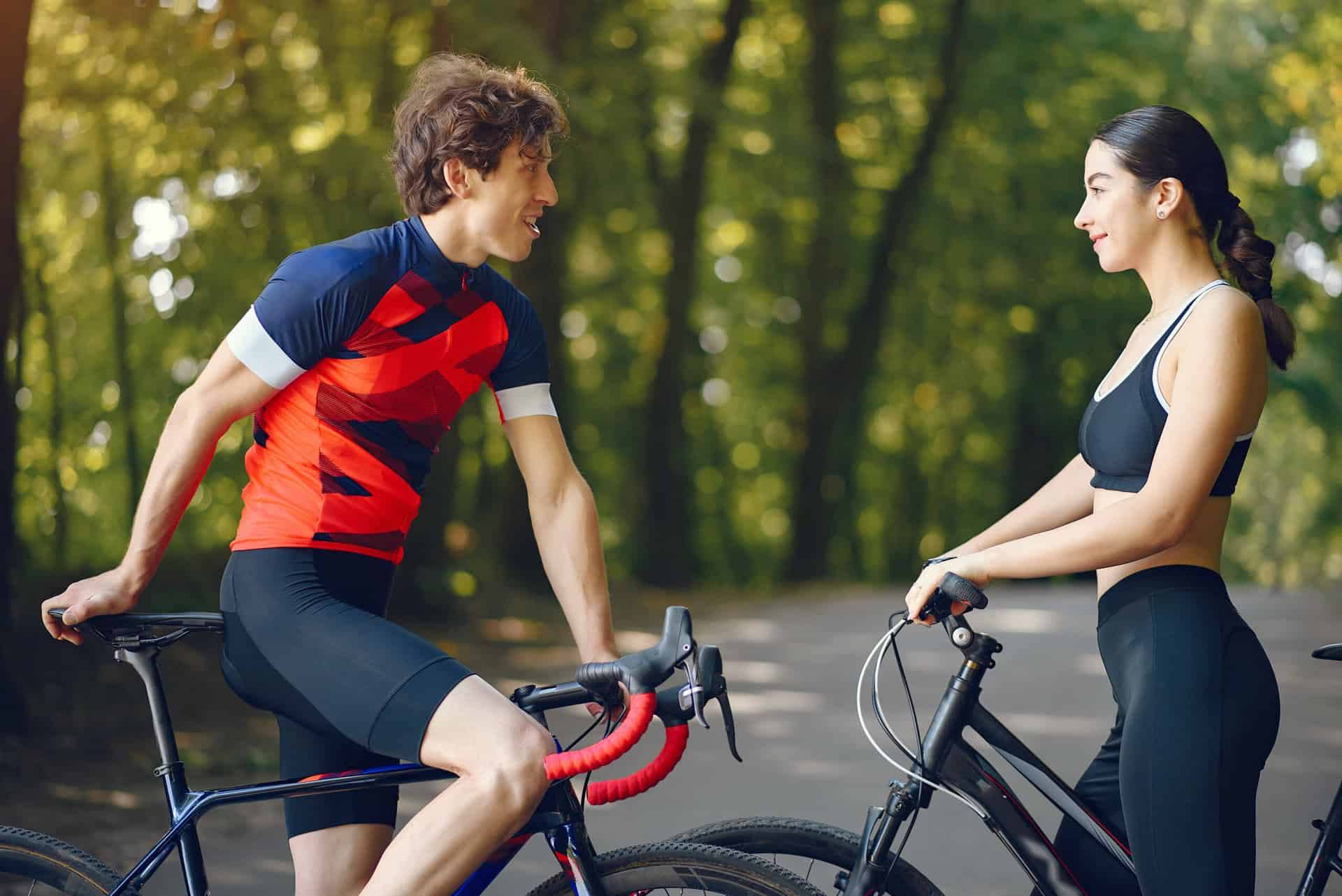Cycling is a demanding sport that requires not only physical stamina but also a strategic approach to nutrition. Whether you’re a novice cyclist gearing up for your first long ride or an advanced cyclist preparing for a competitive race, proper nutrition can make a significant difference in your performance and recovery. This article explores the intricacies of nutrition for cyclists, offering insights and guidelines tailored to various levels of expertise.
The Importance of Nutrition in Cycling
Why Nutrition Matters
Proper nutrition is essential for cyclists as it directly impacts energy levels, endurance, and overall performance. Without the right nutrients, cyclists can experience fatigue, muscle cramps, and a decrease in performance.
Overview of Cycling Demands
Cycling, especially at competitive levels, places considerable demands on the body. Long rides and high-intensity sessions require a balanced diet rich in carbohydrates, proteins, fats, vitamins, and minerals.
Macronutrients for Cyclists
Carbohydrates: The Primary Fuel
Importance of Carbohydrates
Carbohydrates are the primary source of energy for cyclists. They fuel the muscles during prolonged physical activity and help maintain blood glucose levels.
Types of Carbohydrates
- Simple Carbohydrates: Quick energy sources found in fruits, honey, and sports drinks.
- Complex Carbohydrates: Provide sustained energy and are found in whole grains, legumes, and vegetables.
Timing and Quantity
Carbohydrate loading before a long ride or race is a common strategy. Consuming 7-10 grams of carbohydrates per kilogram of body weight in the days leading up to the event can help maximize glycogen stores.
Proteins: The Building Blocks
Role of Proteins
Proteins are crucial for muscle repair and recovery. They also play a role in the production of enzymes and hormones.
Sources of Protein
- Animal Sources: Meat, fish, eggs, and dairy products.
- Plant Sources: Beans, lentils, tofu, and quinoa.
Recommended Intake
Cyclists should aim for 1.2-2.0 grams of protein per kilogram of body weight daily, depending on the intensity of their training.
Fats: Essential for Endurance
Function of Fats
Fats provide a concentrated energy source and are vital for long-duration activities. They also aid in the absorption of fat-soluble vitamins.
Healthy Fats
- Monounsaturated Fats: Found in olive oil, avocados, and nuts.
- Polyunsaturated Fats: Found in fatty fish, flaxseeds, and walnuts.
Balancing Fat Intake
While fats are essential, they should be consumed in moderation and balanced with carbohydrates and proteins.
Micronutrients for Cyclists
Vitamins
Vitamin B Complex
Vital for energy production and red blood cell formation. Sources include whole grains, meat, and dairy.
Vitamin D
Important for bone health and muscle function. Sources include sunlight exposure, fatty fish, and fortified foods.
Minerals
Iron
Essential for oxygen transport in the blood. Found in red meat, spinach, and legumes.
Calcium
Crucial for bone health. Sources include dairy products, leafy greens, and fortified plant milks.
Hydration Strategies
Importance of Hydration
Hydration is critical for maintaining performance and preventing heat-related illnesses.
Fluid Requirements
Cyclists should drink at least 500ml of water per hour of cycling, adjusting for temperature and sweat rate.
Electrolyte Balance
Electrolytes such as sodium, potassium, and magnesium need to be replenished during long rides. Sports drinks can help maintain electrolyte balance.
Pre-Ride Nutrition
Meal Planning
A balanced meal 2-3 hours before a ride should include carbohydrates, proteins, and fats. Examples include oatmeal with fruit and nuts, or a chicken and quinoa salad.
Snack Options
A light snack 30-60 minutes before cycling can help top off energy levels. Options include a banana, an energy bar, or a handful of nuts.
During-Ride Nutrition
Energy Gels and Bars
Convenient sources of carbohydrates during long rides. They provide quick energy and are easy to carry.
Real Food Options
Bananas, dried fruit, and small sandwiches are excellent real food alternatives for on-the-go nutrition.
Hydration Tips
Sip water regularly and consider sports drinks for rides longer than an hour to maintain hydration and electrolyte levels.
Post-Ride Recovery
The Importance of Recovery Nutrition
Proper nutrition post-ride is essential for muscle recovery and replenishing glycogen stores.
Optimal Recovery Foods
A combination of carbohydrates and proteins is ideal. Examples include a smoothie with protein powder, Greek yogurt with fruit, or a turkey and avocado wrap.
Timing for Recovery
Consuming recovery foods within 30 minutes of finishing a ride is optimal for muscle repair and glycogen replenishment.
Nutrition for Different Types of Cyclists
Novice Cyclists
Basic Nutritional Guidelines
Focus on a balanced diet rich in whole foods. Emphasize hydration and start with small, frequent meals.
Common Mistakes to Avoid
Skipping meals, not drinking enough water, and over-relying on supplements instead of real food.
Intermediate Cyclists
Advanced Nutritional Strategies
Incorporate nutrient timing and experiment with different energy gels and bars during rides.
Supplements to Consider
Protein powders, electrolyte tablets, and omega-3 supplements can be beneficial.
Advanced Cyclists
Specialized Diet Plans
Work with a nutritionist to develop a tailored diet plan that meets specific training and performance goals.
Performance Enhancing Foods
Beetroot juice for improved blood flow, tart cherry juice for recovery, and caffeine for increased alertness and endurance.
Special Dietary Considerations
Vegetarian and Vegan Cyclists
Protein Sources
Incorporate plant-based proteins like beans, lentils, tofu, and quinoa. Consider using protein supplements if needed.
Nutrient Deficiencies
Pay attention to potential deficiencies in vitamin B12, iron, and omega-3 fatty acids. Supplements may be necessary.
Cyclists with Food Allergies
Managing Allergies
Identify and avoid trigger foods. Ensure that replacement foods provide equivalent nutritional value.
Allergy-Friendly Foods
Opt for gluten-free grains, dairy-free milk alternatives, and allergy-friendly energy bars and gels.
The Role of Supplements
Popular Supplements for Cyclists
- Protein Powders: For muscle repair and recovery.
- Electrolyte Tablets: For maintaining electrolyte balance during long rides.
- Multivitamins: To cover any potential dietary gaps.
Choosing the Right Supplements
Consult with a healthcare provider or nutritionist to select supplements that suit individual needs and goals.
Case Studies: Nutrition Success Stories
Professional Cyclist Experiences
Example 1: Chris Froome
Chris Froome’s nutrition strategy includes a high carbohydrate intake before races and a focus on lean proteins and vegetables during recovery.
Example 2: Marianne Vos
Marianne Vos emphasizes the importance of balanced meals and staying hydrated throughout her training and racing.
Expert Insights on Cycling Nutrition
Nutritionist Advice
Quote from a Sports Nutritionist
“Tailoring nutrition to the individual needs of the cyclist can significantly enhance performance and recovery. Pay attention to your body’s signals and adjust your diet accordingly.”
Common Myths Debunked
Myth: Carbo-loading the night before a race is enough.
Fact: Carbohydrate loading should start several days before the event.
Practical Tips for Cyclists
Meal Prep Ideas
Prepare meals in advance to ensure balanced nutrition throughout the week. Batch cooking and portioning meals can save time and ensure consistency.
Quick Snack Recipes
- Energy Balls: Made with oats, honey, and peanut butter.
- Trail Mix: A mix of nuts, dried fruit, and dark chocolate.
Hydration Hacks
Carry a reusable water bottle and set reminders to drink water regularly. Use hydration packs for longer rides.
How Ultimate Bike Hire Can Help
Bike Rental Services for All Levels
Ultimate Bike Hire offers a wide range of bikes suitable for both novice and advanced cyclists. Whether you need a road bike for a competitive race or a mountain bike for a trail adventure, Ultimate Bike Hire has you covered.
Expert Guidance and Support
Their knowledgeable staff can provide advice on the best bike for your needs and help you with any questions you might have about cycling nutrition and training.
Flexible Rental Options
With flexible rental plans, you can rent a bike for a day, a week, or longer. This allows you to test different bikes and find the perfect fit for your cycling goals.
Conclusion
Proper nutrition is a cornerstone of cycling performance. By understanding the nutritional needs and strategies for different levels of cyclists, you can enhance your training, improve your performance, and enjoy the sport to its fullest. Remember to stay hydrated, choose balanced meals, and consider professional advice to optimize your nutrition plan. And for those looking to elevate their cycling experience, Ultimate Bike Hire provides excellent rental options and support, ensuring you have the right equipment to match your nutritional efforts.

